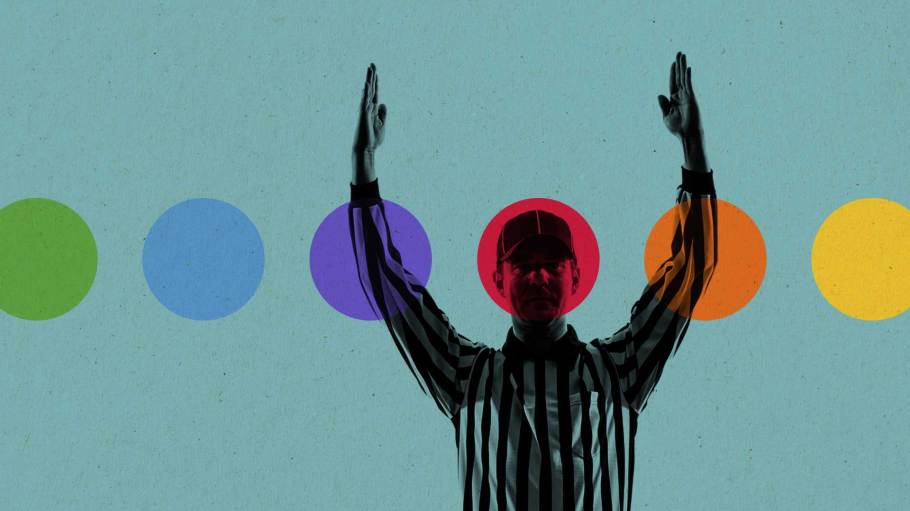Peacock-Exclusive Games Mark Dawn of NFL’s Post-Linear Era
The Christmas weekend was not only a ratings blowout for the NFL but a glimpse of what the league’s future might look like.
The Buffalo Bills’ victory over the Los Angeles Chargers that Saturday night (Dec. 23) was broadcast exclusively on Peacock, a first for the NBCUniversal-owned SVOD, which will also stream a Wild Card playoff game exclusively on Jan. 13.
Ratings for the Bills-Chargers clash unsurprisingly outstripped previous NFL viewership on Peacock, averaging 7.2 million viewers and reaching nearly 10 million in total, per an NBC press release. Sports Media Watch reports about 1.1 million of those viewers were from simulcasts on local NBC stations in Buffalo and Los Angeles, putting the streaming audience at about 6.1 million.
Only two weeks before, NBC Sports had scored what another press release called its “largest streaming audience ever for a regular-season Sunday NFL game” with just 2.3 million viewers averaged across Week 14’s Philadelphia Eagles-Dallas Cowboys matchup.
Of course, the linear viewership alone for that game was equivalent to 80% of Peacock’s total subscriber base (the SVOD has 30 million subscribers as of December). The streamer could never have hoped to match NBC’s typical “Sunday Night Football” ratings, though it would be interesting to know how many people signed up for Peacock just to stream the game. (Luckily for those users, they’ll be able to stream the playoff broadcast, too, while still only paying for one month of the service.)
It’s safe to say Peacock wasn’t expecting to match “SNF” ratings, though, even with a commercial-free fourth quarter to sweeten the deal for viewers. For the streamer, this broadcast was just the first step in a hopefully long, prosperous relationship with the NFL — Peacock has rights to one exclusive game per season through 2028 — and the first chance to sell itself to a crop of new viewers as a premium live sports destination.
The results were a bit mixed on that front: Reaction to the ad-free quarter was far from positive, with viewers complaining about the awkward cuts away from the field during downtime in between plays. A wave of tech-issue complaints also flooded Twitter/X during the game, as often occurs with live streaming broadcasts.
Suffice it to say Peacock could stand to make some improvements ahead of the playoff game next weekend, but I’d wager the streamer isn’t too worried. Bills-Chargers was hardly the marquee matchup of the holiday weekend, and the playoff broadcast will ultimately say more about Peacock’s ability to draw in viewers. (If that game can’t outperform the previous audience, though, it might be time to start worrying.)
But while the benefit of this arrangement for Peacock is obvious, it’s worth asking: What’s in it for the NFL? The league must have known consumers weren’t going to be happy about a game being aired exclusively on an SVOD platform the vast majority of them don’t watch. Why strike a deal so sure to anger your audience?
Financial reasoning aside (Peacock reportedly paid $110 million to carry the playoff game), it’s also, I think, part of the league’s effort to build a multiplatform strategy that will lay the groundwork for a post-linear TV era.
The NFL’s broadcast contracts are in place for the next decade, but the league has been steadily expanding its streaming presence beyond Amazon’s “Thursday Night Football” deal. ESPN+ received exclusive games in both 2022 and 2023, and CBS and NBC both simulcast NFL coverage on Paramount+ and Peacock, respectively.
The league can obviously foresee a day when its viewership will come predominantly from streaming, given the accelerating pace of cord-cutting in the U.S. Making inroads into streaming-exclusive games now will make it much easier to grow the practice later, even if many consumers are frustrated by it at the moment. Football fans, simply put, will swallow their complaints and get on board eventually, evinced by the growing ratings for “TNF” on Prime Video this season.
It seems likely that streaming-exclusive games will become more prominent, and extend to more platforms, in the future. The NFL’s playoff arrangement with Peacock is only a one-year deal, and I doubt the league would pass up the opportunity to bid up the rights for the game next year. (Hans Schroeder, executive VP and COO of NFL Media, also told the Wall Street Journal last spring that “the game would likely continue to be intended for streaming only.”)
And, of course, if the growing fragmentation of coverage across so many platforms is frustrating to consumers, they’ll have to make their dissatisfaction known with an actual ratings decline rather than simply grousing on social media before ponying up. The NFL knows it has the most valuable product in media, and it’s leveraging that advantage to full effect. Two Peacock-exclusive games, in other words, are just the beginning.

